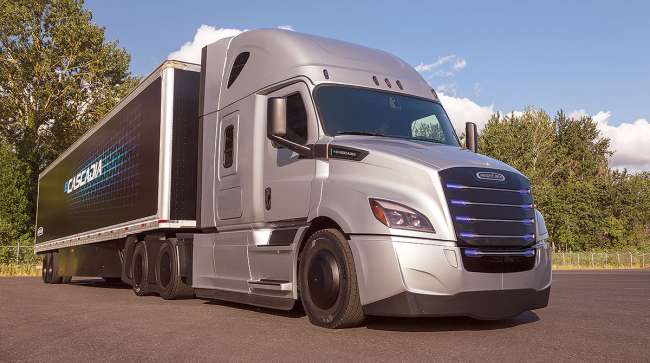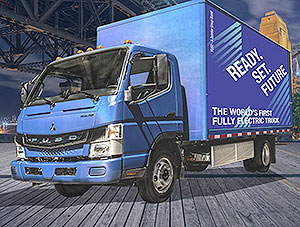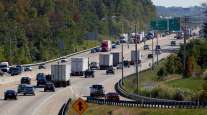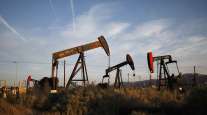Senior Reporter
Cummins, Daimler Trucks Prepare to Fight Climate Change

[Stay on top of transportation news: Get TTNews in your inbox.]
Independent engine maker Cummins Inc. along with Daimler Trucks & Buses, global corporations at the center of the U.S. commercial vehicle industry, are accelerating efforts to combat climate change with their products and at their plants.
Daimler Trucks & Buses reported it would offer only new vehicles that are carbon dioxide-neutral in its key markets of Europe, Japan and North America by 2039.
Take a closer look at PLANET 2050: Our next-generation environmental sustainability strategy. https://t.co/GtJZolZUXB #Cummins #ClimateChange pic.twitter.com/NLGOsq62OV
— Cummins Inc. (@Cummins) November 19, 2019
“This can only be achieved if competitive conditions for CO2-neutral transport are created for our customers in terms of costs and infrastructure,” said Martin Daum, who leads the division.
Cummins said separately that through its “Planet 2050” strategy it is aligning itself with science-based goals designed to limit global temperature rise to no more than 1.5 degrees Celsius (or 2.7 degrees Fahrenheit) by the middle of the century. It will ramp up efforts to reduce energy use, reduce waste, conserve water and eliminate carbon dioxide emissions from its products.
Carbon-neutral products, including engines, are the company’s “ultimate ambition,” said Cummins CEO Tom Linebarger, as it prepares to “aim higher and do more.”
The company did not respond to a request for details on the amount of any additional investments it was set to allocate to achieve its goals.
As the industry pioneer in electric trucks & buses, we're working to #sustainably transform our core product portfolio to include battery #electric series production vehicles by 2022 & to achieve CO₂ neutrality by 2039 for new vehicles in the triade https://t.co/7BZApOXMAt pic.twitter.com/4yekFXUJd3 — Daimler Trucks & Buses (@DaimlerTruckBus) November 21, 2019
But the urgency in Linebarger’s voice during a recent conference call with reporters was clear.
“We have an existential threat of climate change,” he said. “There really has never been a more important time to think about environmental sustainability. We all know that pollution, water scarcity and threats to other natural resources have been growing for many years and, with population growing, these things are only becoming more acute.”
Cummins and Daimler see the writing on the wall as trends emerge, stockholders take note, customers inquire and markets, potentially, shift, Glen Kedzie, counsel for Energy and Environmental Affairs at American Trucking Associations, told Transport Topics.
“When you have California getting ready to adopt a rule requiring manufacturers to produce a certain percentage of zero-emission vehicles, which is code, really, for electric trucks, states are not waiting for the federal government to do something. That’s the writing on the wall,” Kedzie said.
Meanwhile, barriers exist in every pathway to reduce emissions, Linebarger said. Needed are: improvements to diesel, natural gas, electrified and fuel-cell powertrains — some of which lack the available infrastructure to contribute broadly now. Advancements in biofuels and connectivity can also drive emissions down.
Cummins was the leading heavy-duty diesel engine maker in the United States for the first half 2019, according to Wardsauto.com
Linebarger added diesel will be the bridge to a cleaner future, and in some applications the internal combustion engine will not have a substitute for “many, many years.” Advances from applying big data and hybridization will also help those engines become more efficient, according to the Columbus, Ind.-based company.
Cummins will look at the life cycle of the materials it uses, too: where they come from, where they go, can they be reused.
Over the next 12 years, Cummins intends, among other goals, to reduce absolute greenhouse gas emissions from facilities and operations by 50% as well as reduce volatile organic compounds emissions from paint and coating operations by 50%.
Meanwhile, Daimler Trucks & Buses said by 2022 it will have series-produced vehicles with battery-electric drivetrains in Europe, Japan and North America.
Its hydrogen fuel cell trucks and buses will come to market by the end of the next decade, according to the Stuttgart, Germany-based company.

eCanter by Mitsubishi Fuso
Daimler, the majority shareholder in Mitsubishi Fuso, said Fuso is already testing fuel-cell technology for various commercial vehicles.
Daum said incentives will be needed, especially for electrified vehicles.
“Locally carbon dioxide-neutral trucks and buses won’t sell themselves, because even in 2040, despite all efforts by manufacturers, the acquisition and total cost of ownership of trucks and buses with electric drives will be still higher than for diesel vehicles. We therefore need government incentives to make locally CO2-neutral trucks and buses competitive.”
In the United States, the medium-duty Freightliner eM2 and the heavy-duty Freightliner eCascadia battery-electric models are also undergoing intensive field tests with customers, the company said.
About 140 Fuso eCanter light-duty trucks are already in customer service in cities worldwide, including New York City, Tokyo, Berlin, London, Amsterdam, Paris and Lisbon. The Mercedes-Benz eActros heavy-duty truck, with a range of up to 200 km (124.3 miles), is in intensive use by customers in Germany and Switzerland as part of the eActros innovation fleet.
Daimler plans to have all German and European plants supplied by CO2-neutral energy by 2022.
All other plants will follow on an unannounced timetable.
Want more news? Listen to today's daily briefing:




